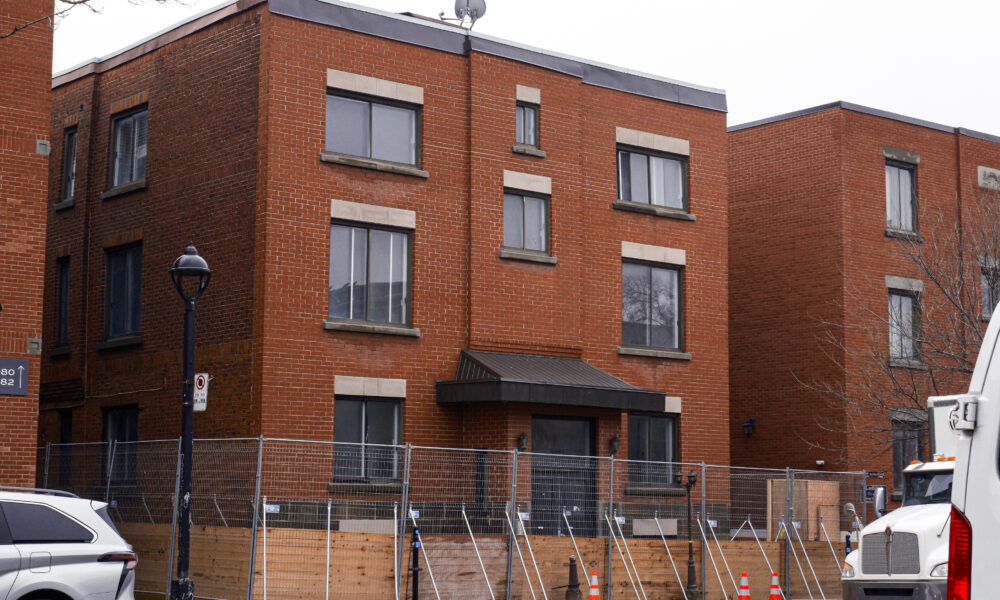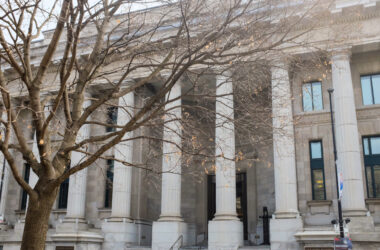A wall of 5990 Av. du Parc, a vacant building in the Mile End, collapsed on the evening of Monday, March 17. The collapse severely damaged the neighbouring apartment building, Parc 5998. Though no one was injured, the incident has left residents displaced without a timeline for return.
Amanda Solomon, a resident of Parc 5998, was in her apartment when the wall collapsed.
“I was sitting on the couch in my living room [….] I heard a loud noise, so I turned and looked, and basically all of the third and second story [of the] building, the wall of that entire side crashed down in a couple of seconds,” Solomon told The Tribune.
Parc 5990 is owned by Habitat 237 Grande-Ile S.E.N.C. and was abandoned for years before the collapse. Mikaela Germani, communications associate at McGill’s Schulich School of Music and a resident of Parc 5998, had noticed visible issues regarding the next-door building’s condition in the preceding months, such as falling bricks and a bowing wall.
Parc 5998 had already been evacuated over these concerns last March, and the city erected fences to bar pedestrian access to the building. Still, according to Germani, no other concrete action was taken by the city to remedy the issue after it was deemed safe for residents to return. Germani raised her concerns directly to the city on March 8, which resulted in firefighters visiting the building. Nevertheless, it ultimately deteriorated to the point of collapse.
The collapse heavily damaged Germani’s apartment. Her window was smashed through, and bricks littered her living room floor. In an interview with The Tribune, Germani reported that firefighters who responded to the scene told her that, had she been sitting on her couch during the collapse, they “wouldn’t be talking right now.”
“When they told me that, it didn’t really hit me because I was running on adrenaline,” Germani said. “So it wasn’t until, finally, I had sort of a safe space to settle down at the end of the night that I started to think about the fact that I had almost died, and in the days that followed, it was really all I could think about. It was always in the back of my mind that I could not be here right now. How would I feel about that, you know, what would be the legacy of my life?”
Nearly two weeks after the collapse, residents of Parc 5998 remain displaced, with no information from the city or their landlords on when a safe return will be possible. Cole Johnson, a resident of Parc 5998 and a PhD student in McGill’s Department of Educational & Counselling Psychology, expressed in an interview with The Tribune the toll the evacuation has taken on his academic and professional life.
“I’ve had a lot less bandwidth and time to attend to things that I would normally be attending to,” Johnson said. “We’re entering the end of the semester right now. I have my own course responsibilities. I have TA responsibilities [….] I’m living out of a suitcase in a friend’s apartment. So the stress that comes with that, and the uncertainty definitely can weigh on a person, especially when we are over a week out from the incident now, and we’re just starting to get a vague idea about when this might be resolved.”
The city is expected to commence demolition work shortly, but residents have not been given a clear timeline. According to Johnson, the owner of Parc 5990 has been difficult to reach since the collapse, though the city is trying to secure a contractor to begin work. Deteriorating buildings are a city-wide issue, continually posing a danger to Montreal residents. Germani urged Montrealers to bring any of their concerns about abandoned buildings directly to the city by calling the non-emergency helpline 311. She also expressed her desire for the city to be proactive in preventing future collapses.
“This isn’t the first building that’s collapsed in Montreal, right? Because it’s been left, it’s been abandoned, it’s become derelict,” Germani said. “Does it really take someone’s death for action to be taken?”









